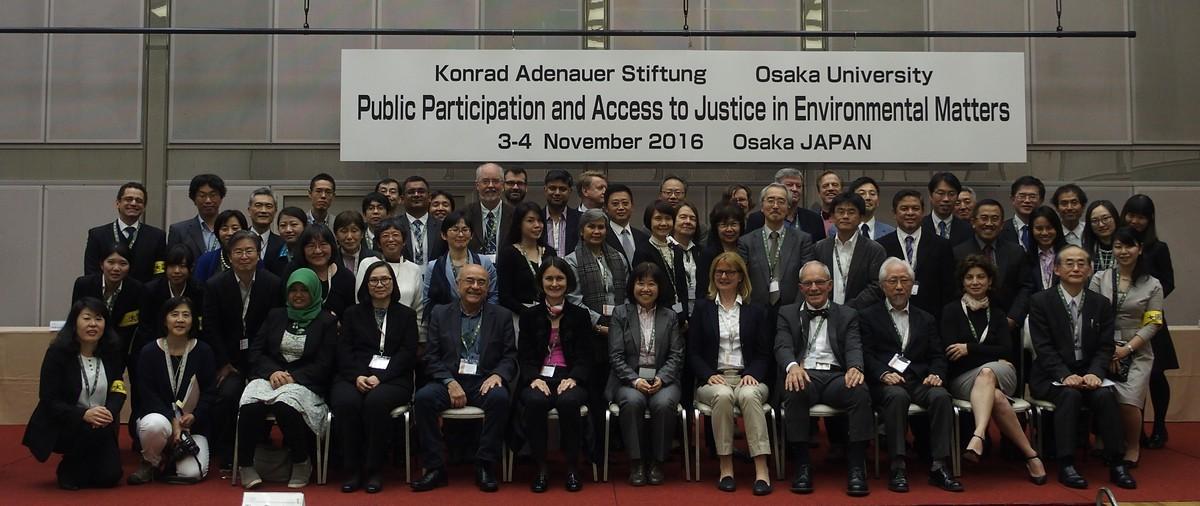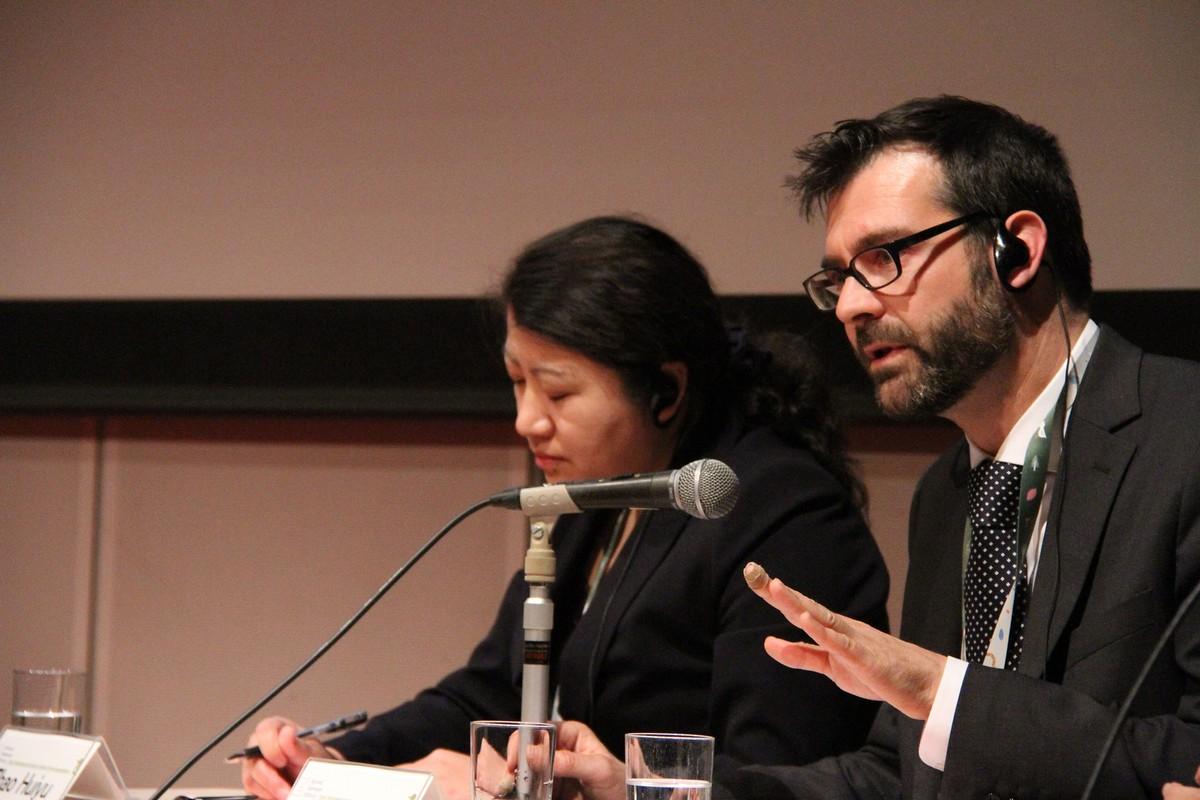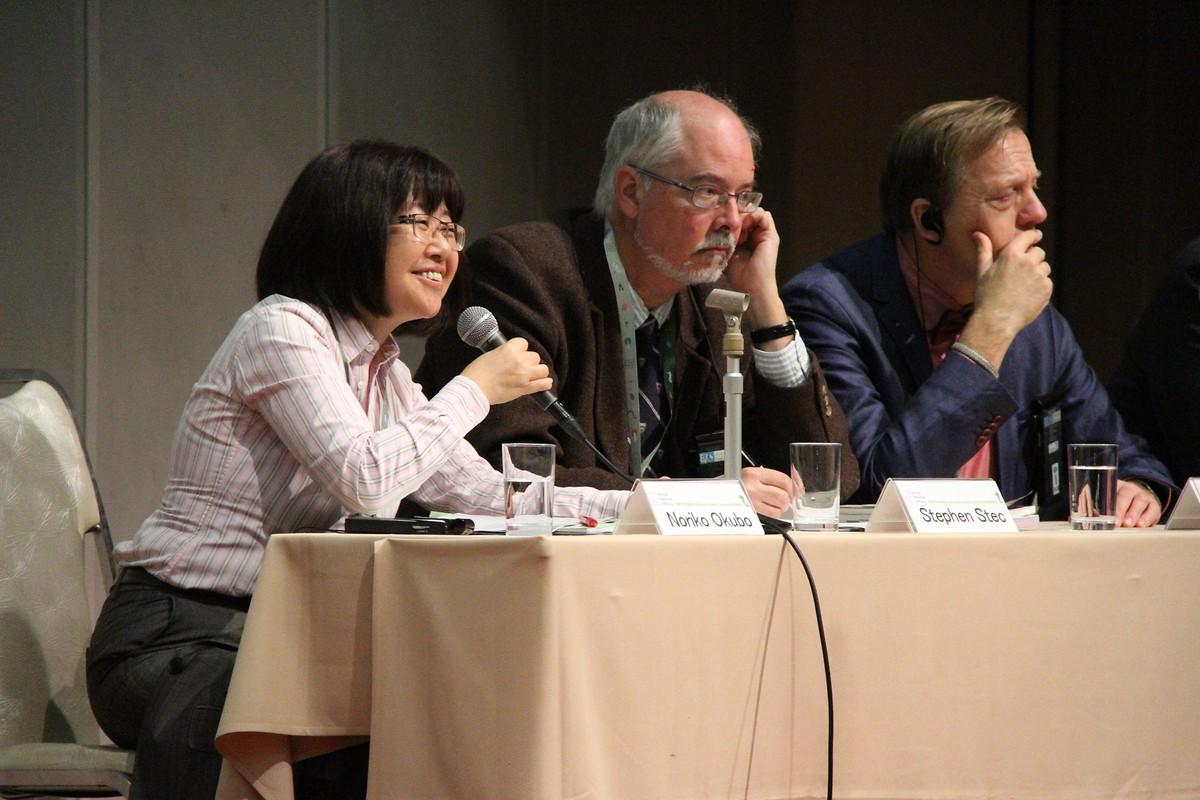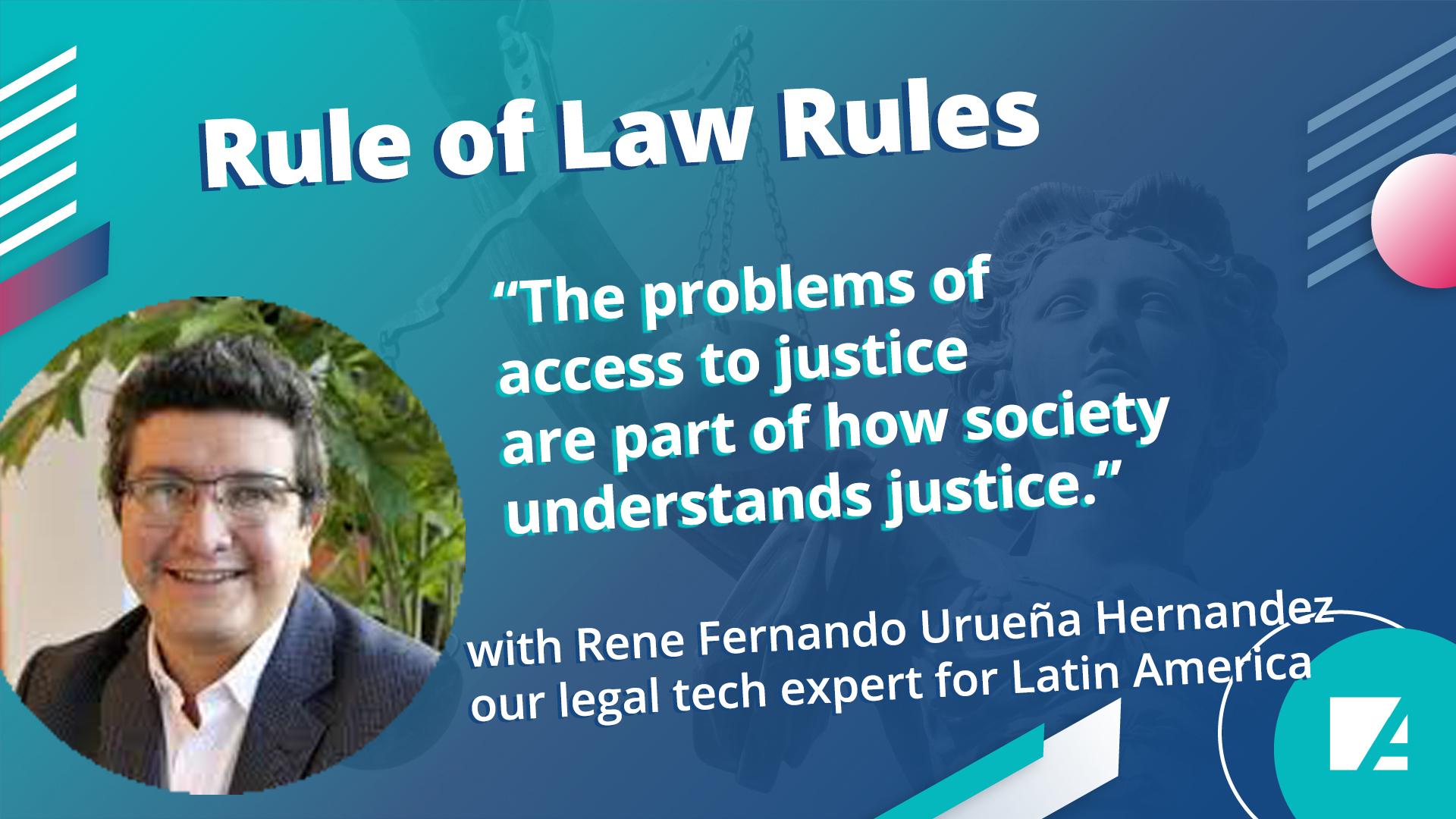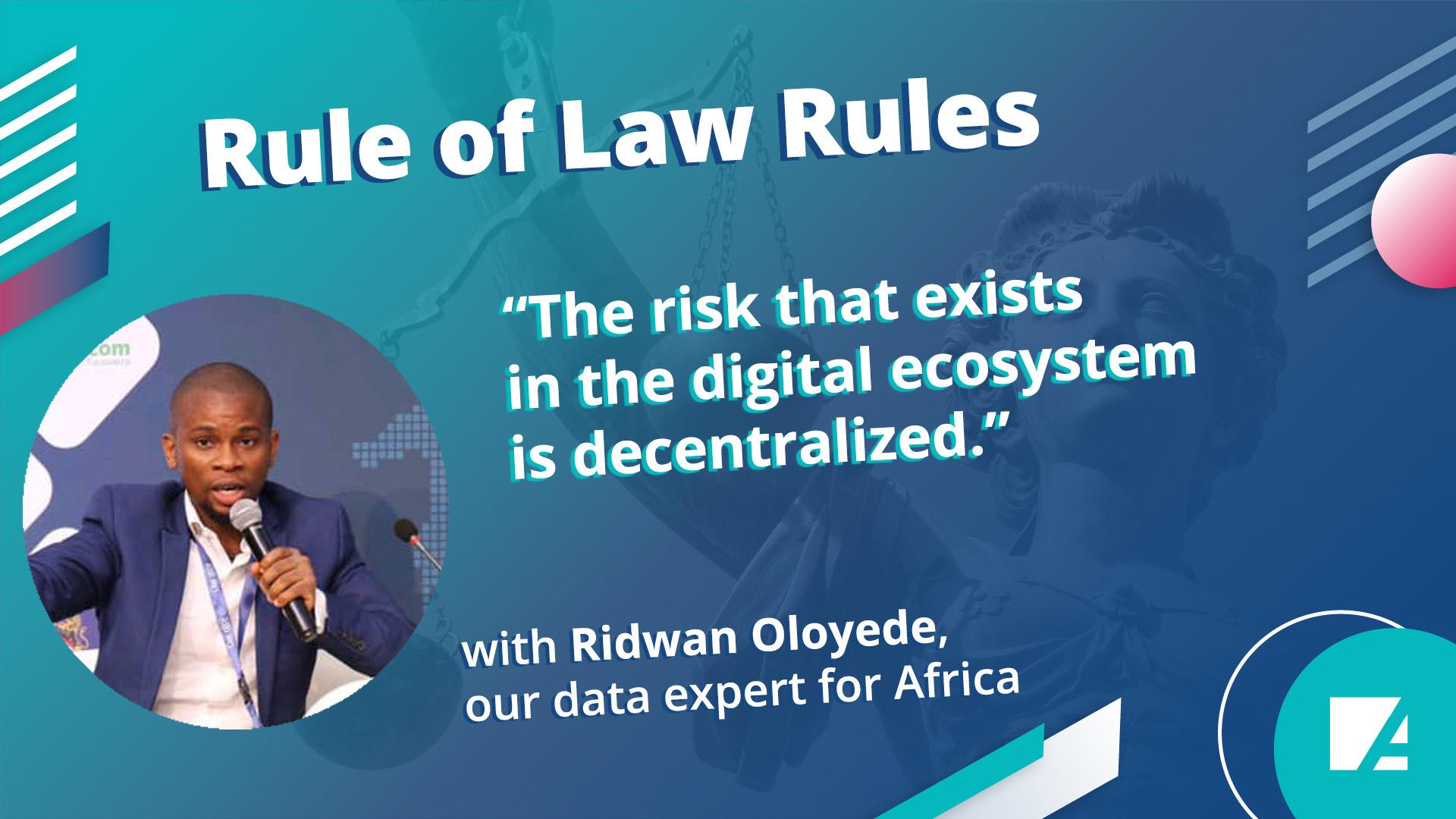Event reports
KAS Alumni Lawyer Prof. Dr. Noriko Okubo, who is also a Japanese expert on Environmental Law, was one of the hosts for this international symposium at Osaka University. A US-American colleague paid tribute to her as a "Globetrotter of Environmental Law", given her indefatigable participation in academic discussions on Environmental Law worldwide.
The participants from 17 countries discussed recent developments regarding the "Green Access Rights". As Principle 10 of the Rio Declaration of 1992 states, environmental issues are best handled with the participation of all concerned citizens, at the relevant levels. Public participation contributes to the protection of the Basic human right to live in a healthy environment. It is also an important instrument of environmental democracy. The Aarhus Convention and Bali Guidelines are international instruments that seek to accelerate action in terms of implementing Principle 10. It requires parties to guarantee the procedural rights of access to information, public participation in decision-making, and access to justice. We refer to them jointly as ‘Green Access Rights’. Effective public participation also depends on full, accurate, and up-to-date information. Access to justice ensures that participation occurs in practice. Therefore, it is important to guarantee 'Green Access Rights' in an integrated manner.
In Asia, but also in Latin America, there have been remarkable developments in environmental law over the last twenty years. Despite such advancements, however, the problem of deficient implementation of laws still persists in many countries of these regions. Some of the reasons cited are shortcomings in a more detailed regulation, insufficient financial resources, corruption among officials and a lack of political will.
Dr. Hans-Jörg Dietsche, advisor for legal policy to the parliamentary group of the Christian Democrats (CDU/CSU) in German Parliament (Deutscher Bundestag), gave an overview on the German legal conditions for participation of Environmental NGOs regarding environmental decision-making. He also shed some light on challenges for investors, including in the context of development projects which are supposed to be environment-friendly, but still might have certain problematic impacts on the environment.
The discussions showed that, given this background, the interest in Asia and Latin America in advocating for environmental public interest litigation (EPIL) is quite broad, while more sceptical voices as to whether this approach might restrict legal systems from adapting to future environmental challenges, come from Europe instead.



